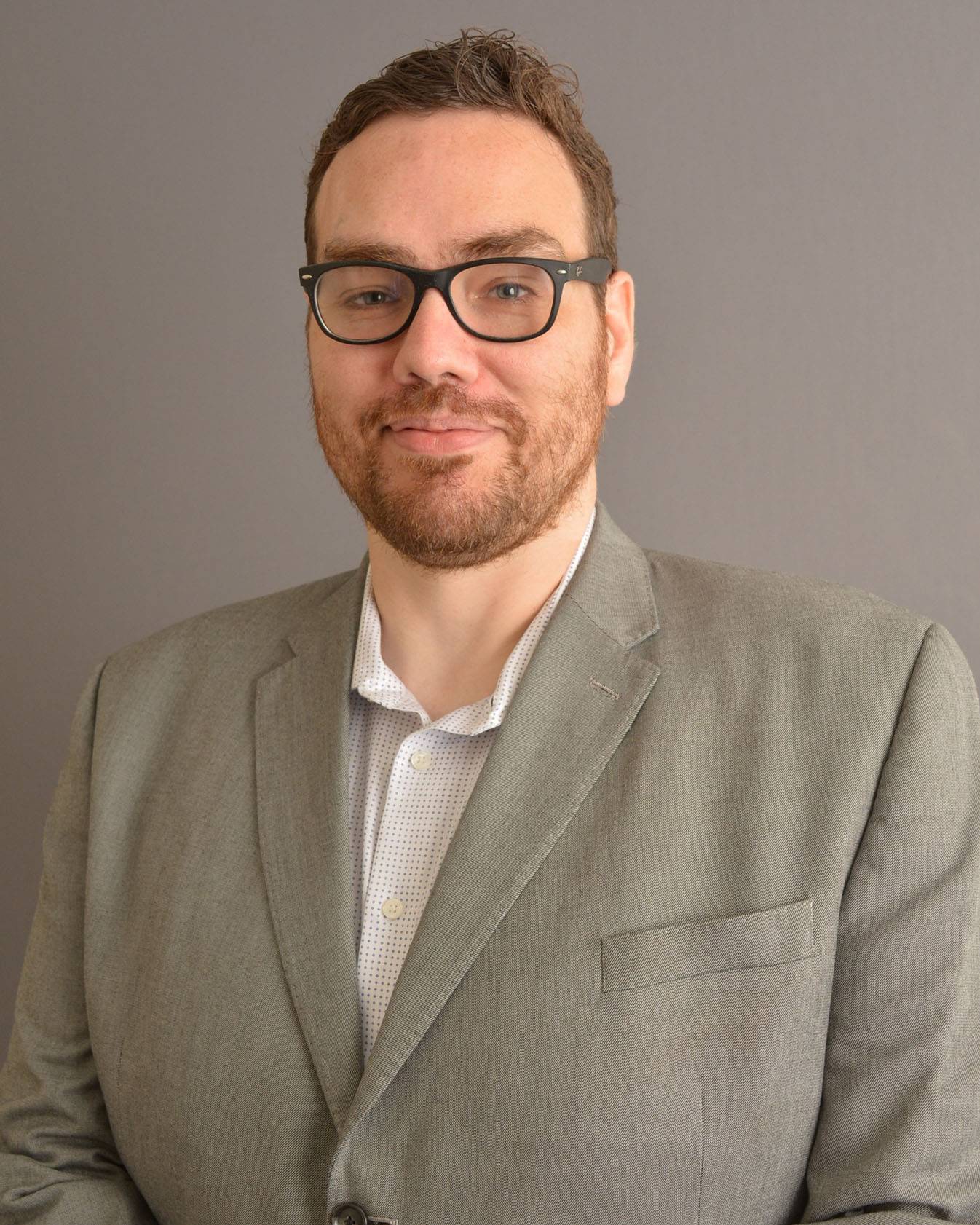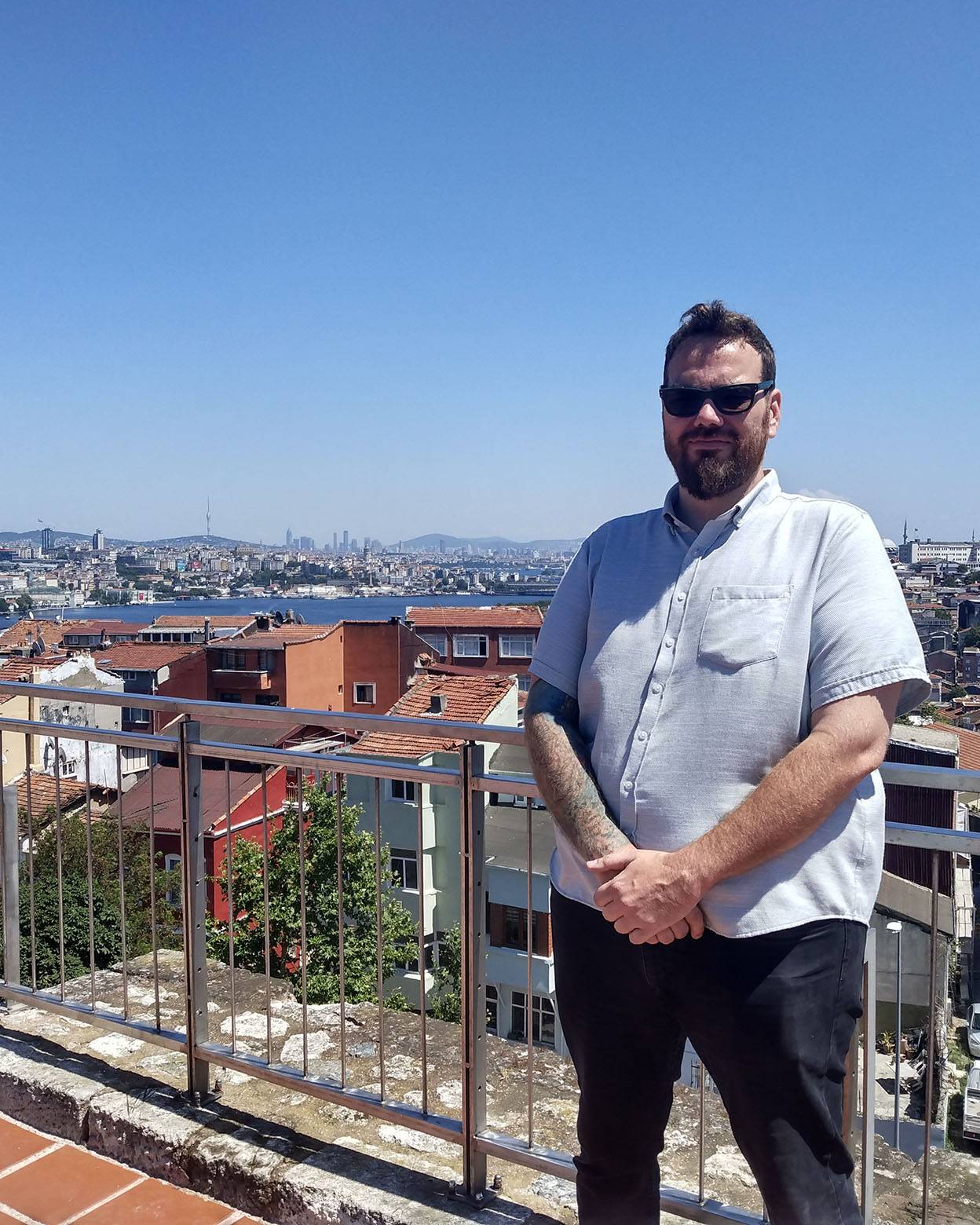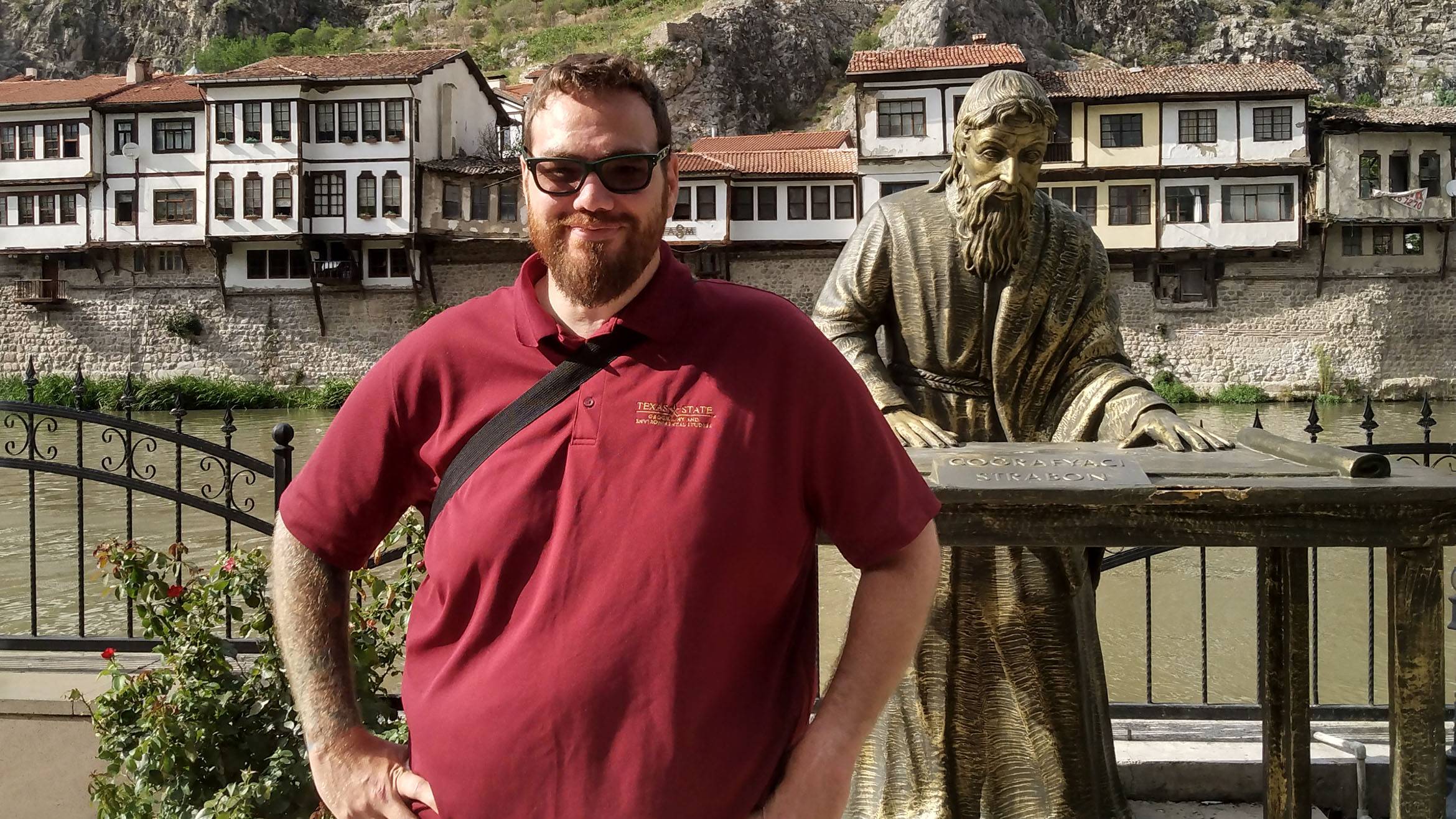Dustin Sanchez, a fourth-year doctoral student in geography at Texas State University, spent the summer of 2024 learning Turkish in Ankara, Turkey, immersed in the country’s culture as a recipient of the Critical Language Scholarship (CLS).
The CLS program provides students at U.S. higher education institutions with a fully funded opportunity to spend eight to 10 weeks learning one of 12 languages that are essential for America’s global engagement and international diplomacy.
Sponsored by the U.S. Department of State’s Bureau of Educational and Cultural Affairs, CLS provides participants with intensive language instruction and cultural immersion to maximize their language gains within each host country.

Currently serving as the director of strategic initiatives with the Forum for Civic Initiatives in Kosovo, Sanchez’s doctoral research focuses on climate hazards and conflict in the Balkans, and he aspires to build a climate-resilient future for the region.
Sanchez was introduced to Turkish while working on an independent research project in Kosovo as a Fulbright U.S. Student Program grant recipient. It was during his time in the Balkans, attempting to understand aspects of cultural significance through code-switching between Albanian and English, that he realized the need for trilateral connectivity to build a climate-resilient future.
Notably, many CLS programs do not have any prior language requirements, which allowed Sanchez to apply for the program with minimal Turkish language experience. The Turkish CLS program, in collaboration with the TÖMER Institute, is designed to accelerate language learning, a structure that Sanchez found effective for improving his Turkish skills.
“The CLS program did all the heavy lifting to take my language from stumbling through Babble practice to solid intermediate capabilities,” Sanchez said. “Being open to new experiences was the primary method of immersion. I had the opportunity to connect with great people within the host community. For me, this meant allowing them to lead experientially and working to remove barriers towards my own connectivity with Turkish culture.”

From his pilgrimage to Amaysa and his walk across the Theodosian walls, to his visit to the city of Gordion where the ancient Phrygian Kingdom of King Midas thrived, Sanchez stressed that his cultural reverence allowed him to appreciate Turkey’s history and politics more deeply.
“Türkiye is the bridge between Europe and Asia, a historic geographic position that also speaks to modern Turkish geopolitics,” Sanchez said. “The experience of the CLS program was transformational with many impactful moments that have no parallel.”
Sanchez seeks to build academic knowledge between Turkish, Kosovan, and American academics, nudging the system towards a more collaborative mindset for global issues such as sustainability and climate resilience.
“I left my career goals behind when I started my Ph.D. after being riffed due to COVID-19,” Sanchez said. “Since then, I focus on impact, not career.”
Future Applicants
Sanchez recommends that prospective applicants focus on the fit with each funder’s goals. “Try to find the line where your interests meet the larger geopolitical picture when applying for these grants,” Sanchez said.
He believes that his ability to “clearly line up regional geopolitical reality with American foreign policy” led him to stand out and demonstrate his merit as an applicant. He also notes that his status as a disabled veteran aligns with CLS’s selection criteria preferences for the award, providing a valuable perspective on intensive cohort-based cultural immersion that he could deploy in his application.
Sanchez encourages students to take advantage of resources available at TXST, such as The Graduate College’s funding coordinators, Dr. Andrea Hilkovitz and Dr. Brian Smith.
“This whole process is a combination of hard work, discipline, and a considerable amount of luck,” Sanchez said. “To a degree, you have to be willing to make your own luck, applying for these grants will open opportunities for other grants — and winning the grants will change your life.”
Students interested in applying for the 2026 CLS program should contact a TXST CLS Campus Advisor. For more information on the eligibility, program structure, application process, and languages available, visit the Critical Language Scholarship webpage.
